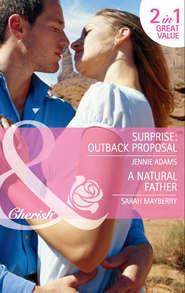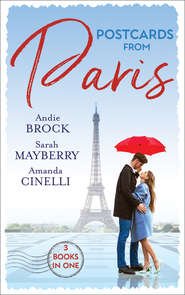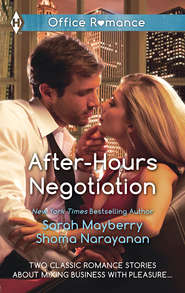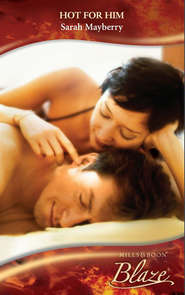По всем вопросам обращайтесь на: info@litportal.ru
(©) 2003-2025.
✖
Take On Me
Автор
Год написания книги
2019
Настройки чтения
Размер шрифта
Высота строк
Поля
Her audience stirred, and a few people tittered. They hadn’t expected wise-cracking, but it was all she had to offer at the moment.
“I don’t suppose anyone wants to volunteer on short notice?” she asked, raising an eyebrow and looking around, pretending she was waiting for someone to step up to the plate. More embarrassed laughter and uncertainty from her audience. “Can’t be tempted? Bummer. I guess it’s party time, then. And I expect to see each and every one of you at the reception—Greg has assured me he’s paying, so let’s make sure we blow out the bar tab.”
Pinning a bright, confident smile on her face, Sadie stepped back from the mike.
Claudia’s face was pale as she helped gather up Sadie’s skirts so she could march back up the aisle.
“Are you sure…?” Claudia asked in an undertone. “I mean, the reception…?”
“Yes. No. I don’t know.”
Sadie had no idea how she was going to get through finger food plus three courses, but somehow she had to.
There was a muted murmur as she strode up the aisle, head high.
Then she was outside, heading toward the limo. The chauffeur hastily butted out his cigarette and leaped to open the door for her. She practically dove into the rear of the car, one hand reaching for the half-full champagne bottle before her dress train had even made it through the door. All pretense at grace or composure gone, she lifted the bottle to her mouth and guzzled greedily. A small rivulet of golden champagne trickled over her chin and down between her breasts. She didn’t give a hoot.
Claudia and Grace wedged themselves in beside her, and Claudia reached over to secure the seat belt over the scrunched-up folds of Sadie’s dress.
Sadie took another hearty slug of champagne before speaking.
“I hope you’ve broken those shoes in, ladies, because tonight we are dancing,” she announced bravely.
DYLAN ANDERSON SMILED to himself as he pulled down the last photo from the corkboard in his office. It had been taken using a Polaroid camera during a long, crazy afternoon in the story room when everyone had been banging their heads against the wall, trying to come up with something to fill sixty minutes of commercial television for Box-Office Cable’s hit drama, The Boardroom. The smile turned into a grin as he studied the shot—six grown, adult people crowded together, their features hopelessly distorted by the adhesive tape they’d used to fix their faces into weird, strange configurations. It was puerile, adolescent—and that was being generous. Particularly given the net total of their salaries. But sometimes the pressure cooker of the writers’ room had to blow. And, in his experience, something strange, funny and wonderful always came out of it.
Okay, maybe the day of the taped faces wasn’t the best example of the phenomena—but it was a great memory, which was why he was taking all his Polaroid shots with him. Each one represented a moment he wanted to remember. The Boardroom had been his best TV writing experience to date, a rare convergence of inspired creator, simpatico writing team and talented directors, cast and crew. An absolute gift, from beginning to end. But Dylan had still opted not to renew his contract with the show for another year.
He’d been tempted. It was always tempting to stay where you knew you were appreciated, and your work was consistently affirmed by the television industry in the form of award nominations, stellar reviews and high ratings. But Dylan had never been the kind of guy to rest on his laurels. Despite what certain people in his past might think. He had goals, and nothing short of the extinction of the entire human race was going to stop him from achieving them.
His hand dropped to the thick envelope sitting on his desk, already addressed and ready for the courier to pick up. His feature screenplay, finished at last. The first of many, he hoped. Ready to send off to his agent so she could begin shopping it around. He patted the envelope, thinking of all the long hours he’d spent plotting the damned thing, writing, rewriting, then rewriting again to get it where he wanted it.
He allowed himself to feel a small moment of pride as he contemplated the achievement on the very simplest of scales—he, personally, had written over ninety pages of screenplay. Spelled the words correctly. Even got the grammar and punctuation right, give or take a few colloquial exceptions. The man—boy, really—he’d been fourteen years ago would have been astonished. But that boy hadn’t known that he had dyslexia. That boy had whipped himself daily for being an ignorant half-wit who couldn’t understand even the basics of stuff that other kids seemed to take in as easily as air. He’d been on a road to self-destruction, spiraling out of control, furious at himself for being kicked out of school, looking for some way to ease the pain…
Realizing that he was standing in his almost-empty office dwelling on his misspent youth, Dylan gave his head a brief, impatient shake. All that stuff was history, water under the bridge. Long gone, done and dusted. Unimportant in the world of here and now.
Stacking the screenplay on top of the carton of personal effects to take out to his car, Dylan spent the next few minutes checking his desk drawers for anything he’d forgotten. Apart from stray paper clips and Post-it notes, he was home free.
His heart felt lighter as he grabbed the box. The Boardroom team were holding a goodbye dinner for him tonight at his favorite Mexican restaurant in Hollywood, and he’d say his final goodbyes then. For now, he was content—happy, even—to be moving on from this stage in his life.
He’d made it to the office door and was balancing the carton on his knee to flick the light off when his phone rang. Frowning, he contemplated not answering it, but his conscience wouldn’t let him walk away without picking up. Sighing, he dumped the box on his visitor’s chair and scooped up the phone.
“Anderson, here,” he said.
“Dylan, it’s Ruby. You got a sec?” his agent asked rhetorically. Rhetorically because, no matter what his response, she always kept talking. She could talk under wet cement, his agent. One of the reasons he paid her a small fortune every year.
“I know you’re keen to put your feet up for a while and give that enormous brain of yours a break, but I’ve just had a very interesting call,” Ruby said. Dylan smiled to himself, recognizing the enormous brain reference as Ruby’s way of softening him up.
“Forget it,” he said firmly. “No. Negative. Non. Not interested. I officially do not exist for the next two months. Then you can start fielding job offers for me again.”
“Dylan, baby, you haven’t even heard what the offer is!” Ruby wailed.
Dylan rested his hip against his desk. Ruby was only getting warmed up, he could tell.
“You’re going to have the screenplay on your desk tomorrow morning. That should keep you busy enough.”
“So you don’t even want to know who’s desperate for a story editor on short notice? Not even a tiny inkling of curiosity?” Ruby asked.
“Nope. Not interested,” Dylan said smugly. He had the next two months of his life planned down to the second—three concepts to develop further for network pitches, and several more screenplays in various stages of plotting. Only when he’d laid the groundwork for the next step in his career would he start looking at in-house jobs again.
“Fine. I’ll ask around the traps, see if anyone else good is available.”
Off the hook, Dylan felt free to be helpful. “Try Olly Jones. I know he was keen to stop freelancing and go back in-house.”
“Yeah, I know. They signed him to Crime Scene last week.”
“Hey, that’s great,” Dylan said, pleased for his friend and making a mental note to give Olly a call. He couldn’t remember the last time he’d had a full weekend to himself or caught up with his friends.
“You got your big goodbye bash tonight?” Ruby asked.
“Yep. Gotta go home and stock up on the tissue,” Dylan said.
“Yeah, right, because you’re so sentimental,” Ruby scoffed.
“I’m an emotional guy,” Dylan defended.
Ruby made a rude noise. “Anyway, I’ll call you once I’ve read the script,” she said.
“Sure. See you.”
Before he could put the phone down, Ruby spoke up again, her tone exasperated. “You’re really going to let me hang up without even asking which show it was? You could really do that?”
“Yep.”
“And you call yourself a writer! Where’s your natural-born curiosity and nosiness?”
“It’s not going to work, Ruby,” he said good-naturedly. “I’ve got too much to work on to even consider it.”
“Fine. It’s just I know you like the show, I thought you’d be tickled to work on it,” Ruby said. He could almost see her shrugging her big shoulder pads.
“Ruby…”
“Fine. Don’t work on America’s number-one daytime soap. See if I care.”
He was about to end the call, but he hesitated for a beat, his interest well and truly caught.
“You mean, Ocean Boulevard?”
“The one and same,” Ruby said smugly. “Apparently, their story ed’s written himself off for six months or so in a car accident.”











